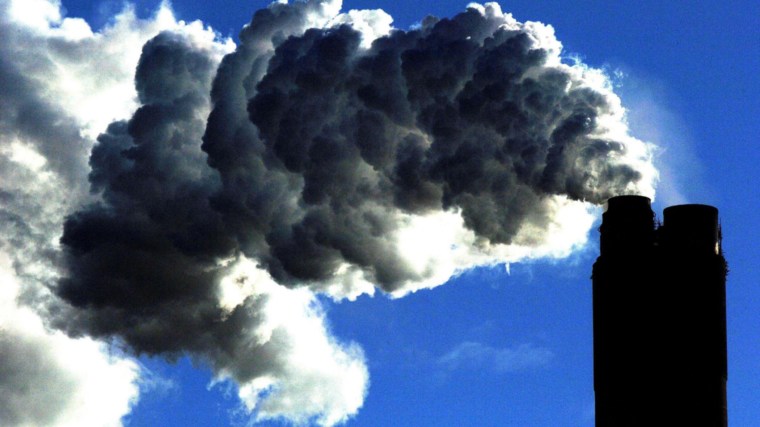In a brief Q&A with reporters late last week, Donald Trump repeated some familiar talking points while attacking his political opponents. "The Democrats, which I've been saying all along, they don't give a damn about crime. They don't care about crime," he said. The president added, "But I care about crime."
In reality, Trump clearly cares about some crimes -- those committed by immigrants, for example -- but he and his administration seem far less concerned about other offenses.
Take environmental crimes, for example.
The Environmental Protection Agency hit a 30-year low in 2018 in the number of pollution cases it referred for criminal prosecution, Justice Department data show.EPA said in a statement that it is directing "its resources to the most significant and impactful cases." But the 166 cases referred for prosecution in the last fiscal year is the lowest number since 1988, when Ronald Reagan was president and 151 cases were referred, according to Justice Department data obtained by the nonprofit Public Employees for Environmental Responsibility advocacy group and released Tuesday. [...]EPA referrals resulted in 62 federal convictions in fiscal year 2018, the fewest since 1995.
This isn't the only agency that's seen a significant drop in enforcing existing protections. The New York Times reported in November, "Across the corporate landscape, the Trump administration has presided over a sharp decline in financial penalties against banks and big companies accused of malfeasance."
The Times' report highlighted a 62% drop in penalties from the Securities and Exchange Commission, and a 72% decline in corporate penalties from the Justice Department's criminal prosecutions.
Trump's Consumer Financial Protection Bureau, meanwhile, has dramatically curtailed its enforcement efforts, and the administration's enforcement of antitrust laws has reached a level unseen since the Nixon era.
The Associated Press reported in July:
While Donald Trump has positioned himself as a tough, "law and order" president, he has mostly excluded one group of offenders from his sights: those of the corporate class, according to a report released Wednesday by Washington-based watchdog Public Citizen.The report found that in 11 of the 12 federal agencies led by a Trump-appointed official during the president's first year, penalties imposed on corporate violators dropped, in the majority of cases by more than 50 percent.
All of this may very well have the effect of encouraging more crime: by taking a passive approach to prosecuting the corporate class, Trump is sending an unmistakable signal that corporations will find it easier to get away with wrongdoing.
So why is it that we hear the Republican president talk so much about "law and order" and his deep concerns about crime? I'm reminded of an op-ed MSNBC's Chris Hayes wrote for the New York Times last year, explaining Trump's perspective.
If all that matters when it comes to "law and order" is who is a friend and who is an enemy, and if friends are white and enemies are black or Latino or in the wrong party, then the rhetoric around crime and punishment stops being about justice and is merely about power and corruption.And this is what "law and order" means: the preservation of a certain social order, not the rule of law.
In Trump's preferred vision of social order, corporate crimes simply aren't that important.
